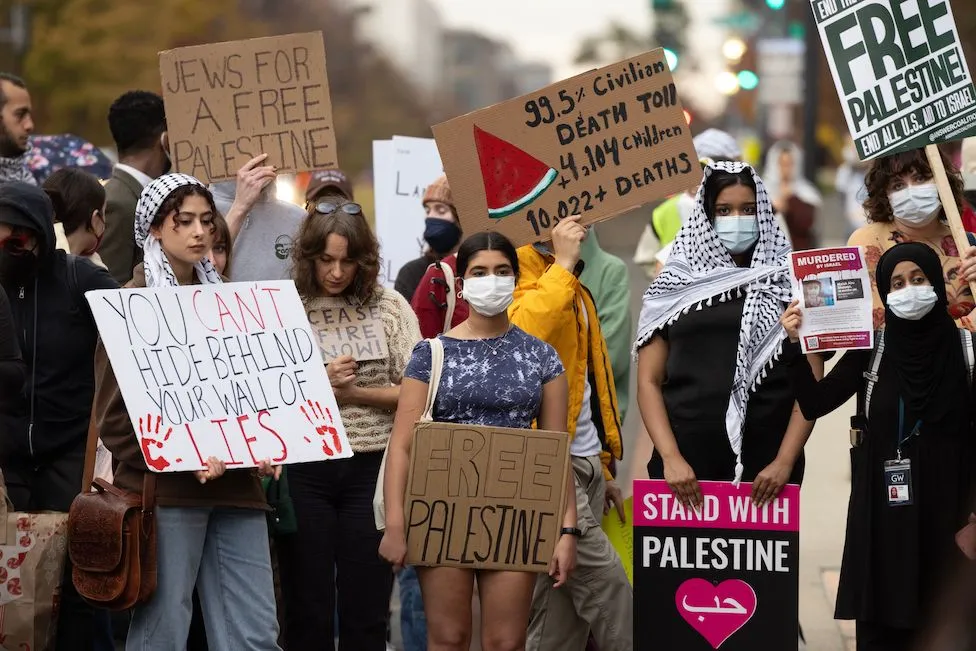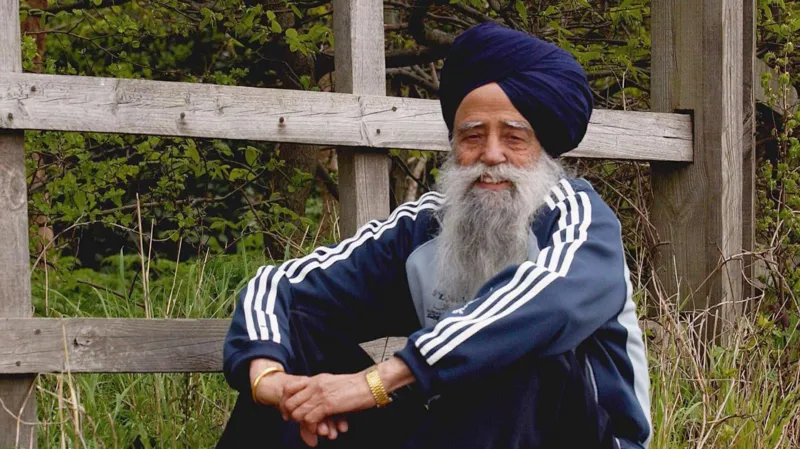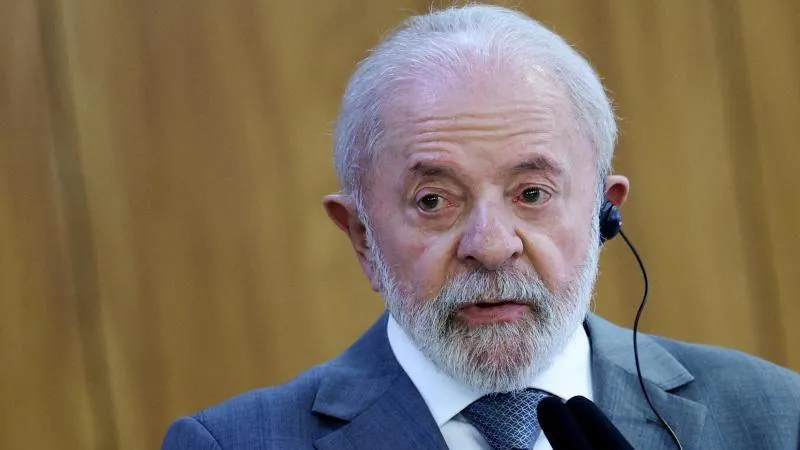Palestinian-Americans struggle with survivors' guilt
For many Palestinian-Americans living thousands of miles away from Gaza but watching the deadly violence from afar, it's more than grief that grips them - it's also guilt.

"I think guilt is a feeling that a lot of Palestinians in the diaspora feel because every single Palestinian has Palestine in their heart, no matter where we live," says Anees, a Palestinian-American musician who lives in Virginia.
The 31-year-old has a huge Instagram following of 1.7 million people, and since the start of the Israel-Gaza war has used his platform to post about the war and call for a ceasefire.
"When we see the devastation, when we see the killings, I think inherently we feel this guilt that it could have been us," he says.
Since Hamas attacked Israel on 7 October, killing 1,200 people and taking about 240 people hostage, the Israeli military has responded with a heavy bombing campaign which it says is aimed at Hamas but which the UN says is "wiping out whole families and entire neighbourhoods". More than 14,000 people have been killed, according to the Hamas-run health ministry.
Palestinian-Americans who spoke to the BBC say watching what's happening in Gaza unfold on social media feeds and TV screens has been emotionally debilitating.
"Everything I enjoy - every little thing - from the smallest to the biggest joy, my second thought is [Palestinians in Gaza] don't get to enjoy this," says Anees.
"I'm still able to go with safety to the grocery store without being bombed. I'm still able to go out to dinner without being bombed."
In the minds of many Palestinian-Americans, the answers for how and why they're in the US only add to the complexity of emotions - many are the children and grandchildren of Palestinians who fled previous wars.
Jinan Deena, born in Ohio and one of seven million Palestinians around the world, says her grandmother was one of up to 750,000 Palestinians who fled or were forced out of their homes at gunpoint in the war that followed Israel's creation in 1948.
This violent displacement is what Palestinians today call al Nakba, or "the Catastrophe", and it pushed Jinan's grandparents to want to leave, she says.
Her family first resettled in the West Bank, where Jinan's mother was born, before coming to the US in 1981.
"Sometimes I wonder what if my mom stayed, and I was born and raised there?"
Jinan, 41, spent many summers in the West Bank and lived there for two years as a teenager. But her family eventually returned to the US because "it just wasn't easy for us to go from living in America to living under occupation".
The presence of Israeli military tanks and checkpoints, tear gas and rubber bullets was too much, she says.
"I look back at us leaving, and I'm like, 'Was that a cowardly thing to do? What makes me better than them?' Palestinian guilt has different levels to it."
The US sends Israel billions of dollars in military aid every year, and a bill is making its way through Congress which would send more.
"I also feel guilty as an American, because my tax money is going to fund this huge war," says Jinan.
The rising death toll has intensified the emotional distress of Palestinian Americans. At least 5,600 children in Gaza have died since 7 October, according to the Hamas-run health ministry. And the number grows each day, "becoming a graveyard for children", according to the UN.
"I feel helpless, and I feel hopeless," says Jinan. "I find joy in absolutely nothing."
Feelings of guilt are also amplified by news of living conditions on the ground. Residents of Gaza have had their access to water cut off by Israeli blockades, and are facing food and water shortages and disease. Some residents of Gaza have told the BBC that they have been driven to drink sea water.
"I was running water into a massive pot to boil potatoes and I just broke down crying," Marcelle Afram recalls.
"Here I am just being able to turn on the faucet and literally pour more water into one pot to boil potatoes than one person in Gaza is able to have in an entire week right now."
Marcelle, a food catering business owner in Washington DC, says feelings of guilt have moved him to turn down work that isn't related to fundraising for Palestinian causes.
"If I don't use everything at my disposal to help, I will have to live with that for the rest of my life."
It's a sentiment echoed by Anees, who says he only uses his platform now to speak about the war.
Stephanie, an administrator for the Facebook group Palestinians in Boston, says she feels similarly. She asked that we not use her last name, saying she has received threatening messages on Facebook since becoming more vocally pro-Palestinian.
Pregnant with her first child, intense nausea and fatigue kept her on the sidelines during some of the initial protests in Boston. Instead, she says she tried to be an "activist at home" and made calls to her state representatives urging for a ceasefire.
"I would feel bad. Part of me was like, 'People are dying, and you feel sick and you're going to stay home?'"
Eventually, she says her feeling of "personal responsibility" outweighed the discomforts of her pregnancy.
She attended a pro-Palestine rally in Boston on 22 October, the biggest she had ever been to in her life.
It was moving, and it made her feel something else she said she hadn't in a while - hopeful.
"It made me feel like maybe we could make a difference."
-bbc







